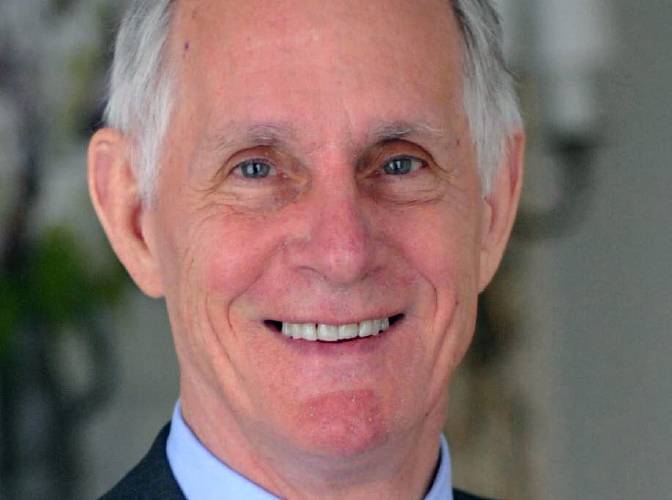In an essay in Wednesday’s New York Times, Michael Eric Dyson, a Baptist minister and Vanderbilt professor, made an eloquent argument for the power of restorative justice.
He alluded specifically to the legacy of the remarkable Archbishop Desmond Tutu, who died last Sunday. Tutu’s “theological genius,” as Dyson characterized it, was to apply restorative justice to the wounds apartheid inflicted on South Africa. The Truth and Reconciliation Commission sought to heal through forgiveness, empathy and compassion rather than retribution.
He also cited the words of the Rev. Anthony Tompkins, whose wife was among those at the historic Emanuel African Methodist Episcopal Church who were murdered by white supremacist Dylann Roof. “I would just like him to know, I forgive you, and my family forgives you.”
Tutu and Tompkins were ostensibly motivated by their faith, but I don’t think there is an important distinction between the theological notions of forgiveness and restorative justice or their psychological and emotional power.
In cases as disparate as former Virginia Gov. Ralph Northam’s blackface incident, Amy Cooper’s racist treatment of a Black birdwatcher in Manhattan, or the recent manslaughter conviction of ex-police officer Kim Potter for “mistakenly” killing Daunte Wright, Dyson argued that a measure of restorative justice would do more good than mere retribution.
Times readers’ comments were nearly unanimously laudatory, thanking Dyson for bringing wisdom to our sharply contentious politics. But many of the generous responses conveniently misread his condemnation of “cancel culture” and also took it as an invitation to air their own grievances about the supposed overreach of anti-racist work.
I wrote this comment: “I am simply amazed by the numbers of (apparently) white readers who react to this piece by complaining about Critical Race Theory or other efforts to familiarize white folks with the undeniable fact of white privilege. Restorative justice is powerful on the individual level, but more important on the broader societal level. Unless we white folks come to profoundly regret the harm we’ve done and the broad benefits we enjoy as a result, there will be no racial reconciliation. Defensiveness and denial are not restorative.”
I received these replies:
Reader 1: “We ‘white folks,’ to use your terms, are not a monolith. Reproaching tens of millions of poor whites in the U.S. with their ‘white privilege’ and insisting they accept your ‘undeniable facts’ is unlikely to have a happy outcome. We’re a country, not a seminar lead by a ‘racism expert.’ ”
Reader 2: “I don’t accept the notion that people of any race should feel guilt or responsibility for the wrongful actions of other people of their race. A Black person should not feel guilty or responsible for the murders committed by a Black gang member. A white person should not feel guilty or responsible for the heinous conduct of a white policeman killing a Black man. The same principle should apply to acts committed by prior generations. That said, it is a fact that some people have more advantages in life than others. Wealth is the primary reason for those advantages. We should be focused on what can be done now to ensure that everyone has a fair shot at a good life. That probably will mean increased taxes and government programs to provide meaningful opportunities to everyone.”
I have never written about white privilege, affirmative action or systemic racism without eliciting a similar reaction, including from “liberals” who too quickly resort to “I’m not racist!” and some version of the sentiments expressed above. Yet white privilege is undeniable. It is the cumulative impact of generations of economic, social and psychological advantage. It makes no difference that some white people work hard or experience poverty.
White privilege is not just the absence of blatant discrimination. In every dimension of life, being Black means inheriting relatively less capital. If you consider any statistic — for example that white families have 10 times the net worth of Black families — the systemic effect of racism is manifest. Pointing out that some Black families have more wealth than some white families is an irrelevant distraction.
Another way of looking at white privilege is to acknowledge that there are many aspects of American life where being white predicts a measurable advantage. There is no aspect of American life where being Black predicts advantage. (Spare me comments about elite athletes or the Black applicant who got into Harvard.)
I despair for racial progress in America. In each instance Dyson cited, it was for the Black person to forgive the white offender. A Black minister forgave the white murderer of his wife. The Black community was to forgive the transgressions of the white racial profiler and the white police officer was to be “restored” as well as punished.
I embrace the concept of restorative justice, but the power of forgiveness requires the acknowledgment of responsibility. And here, the United States has failed and failed miserably. According to a study done by the Center for Public Opinion at UMass Lowell, 64% of Americans believe that all of us are treated equally and angrily deny “white privilege.”
The stench of slavery and racism hangs over our country. It is the responsibility of white Americans to teach it. I have many Black friends and colleagues who are exhausted by the futility of it all. Now, when some schools attempt to meet this responsibility, there is searing backlash.
We’ve never had racial justice in America, so what is there to restore? Until and unless we are willing to acknowledge our complicity — all of us — there will be no progress. We cannot have reconciliation until we face the truth.
Steve Nelson is a Valley News columnist. He can be reached at stevehutnelson@gmail.com.




